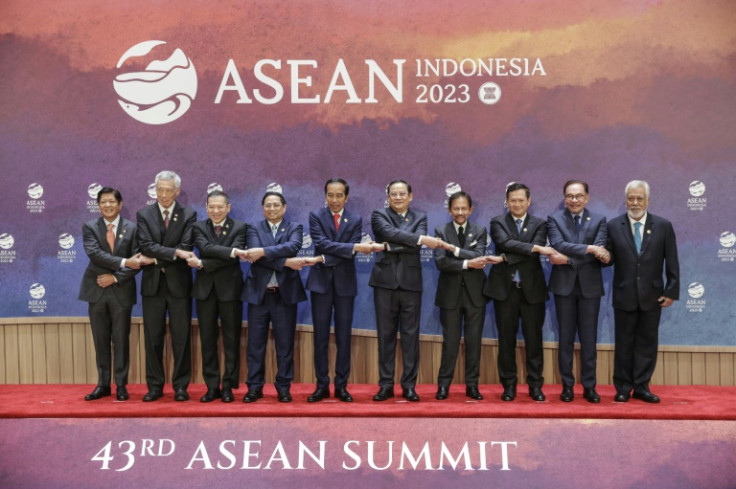ASEAN Doesn't Want Region To Become 'Arena Of Confrontation': Thai Deputy PM

KEY POINTS
- Parnpree Bahiddha-Nukara said power rivalry should transition into a "rule-based strategic competition"
- He said the ASEAN cannot be "forced to choose sides" between nations that want to establish greater influence in the region
- Thailand celebrates 190 years of diplomatic ties with the U.S. this year
The Association of Southeast Asian Nations (ASEAN) doesn't want the region to be turned into a venue for "confrontation" between rivaling powers, Thailand's deputy prime minister said Monday.
"At a time when we need more global cooperation, the world has become more fragmented with friend-shoring, decoupling and geopolitical rivalry becoming the norm. Major power rivalry must be turned into a rule-based strategic competition that does not force countries in the region to choose sides, nor forgo economic opportunity out of geopolitical consideration," Thai Deputy Prime Ministry Parnpree Bahiddha-Nukara said during the Hong Kong-ASEAN Summit on Monday, the South China Morning Post reported.
Parnpree added that the 10-member bloc doesn't want to see the region turned into "an arena of confrontation and wants to avoid "being forced" to take sides between nations that want to establish greater influence in the region.
The Hong Kong-ASEAN Summit 2023 will mainly focus on renewable energy investments, technology and talent attraction, physical connectivity, and opportunities and challenges in the region that could affect growth trajectories.
Parnpree's remarks came as Washington and Beijing eye greater influence across the ASEAN region.
In mid-2022, the U.S. military and civilian officials reportedly expressed increasing concerns regarding Thailand potentially falling under China's influence. At the time, Beijing was allegedly pressuring Thailand to purchase Chinese-manufactured submarines.
For some in Thailand, there is no need for Beijing's pressure as many Thai elites and citizens have historically had warm views of China. In June, both countries secured agreements to promote business linkage and improve investment opportunities.
The U.S. has been concerned regarding China's influence on Thailand.
Thailand is one of the U.S.'s oldest treaty allies in Asia. This year marks 190 years of diplomatic relations between the countries. However, experts observe the two countries have failed in recent years to modernize their alliance, and one reason could be that the Thai government is "quite sanguine" about Beijing's growing influence and power.
In recent months, though, Thailand has shown interest in strengthening trade ties with American companies. Prime Minister Srettha Thavisin last month said he expects at least $5 billion in investments from Tesla, Google and Microsoft in the coming years.
It remains to be seen whether the country will find a balance between re-energizing relations with Washington and strengthening trade ties with China.
Between 2017 and 2021, the U.S. was Thailand's largest market for exports, followed by China. Also in the same period, Thailand imported the most products from China, followed by Japan and the U.S., according to the World Bank's World Integrated Trade Solution (WITS).
© Copyright IBTimes 2024. All rights reserved.






















